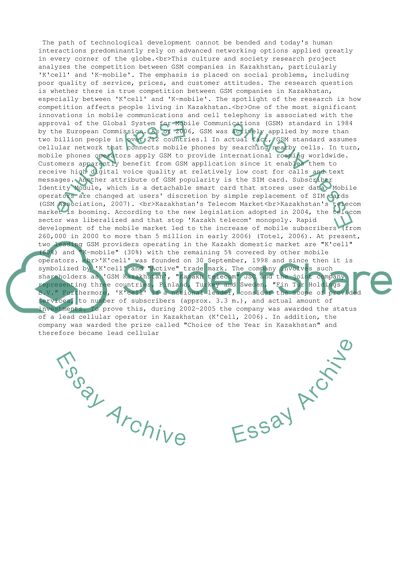Cite this document
(“Competitive GSM companies in Kazakhstan Case Study”, n.d.)
Competitive GSM companies in Kazakhstan Case Study. Retrieved from https://studentshare.org/business/1527793-competitive-gsm-companies-in-kazakhstan
Competitive GSM companies in Kazakhstan Case Study. Retrieved from https://studentshare.org/business/1527793-competitive-gsm-companies-in-kazakhstan
(Competitive GSM Companies in Kazakhstan Case Study)
Competitive GSM Companies in Kazakhstan Case Study. https://studentshare.org/business/1527793-competitive-gsm-companies-in-kazakhstan.
Competitive GSM Companies in Kazakhstan Case Study. https://studentshare.org/business/1527793-competitive-gsm-companies-in-kazakhstan.
“Competitive GSM Companies in Kazakhstan Case Study”, n.d. https://studentshare.org/business/1527793-competitive-gsm-companies-in-kazakhstan.


